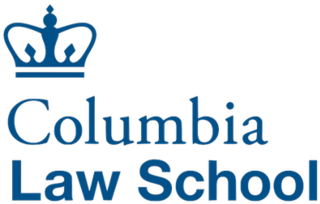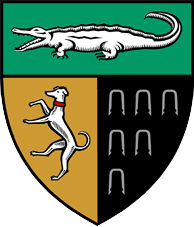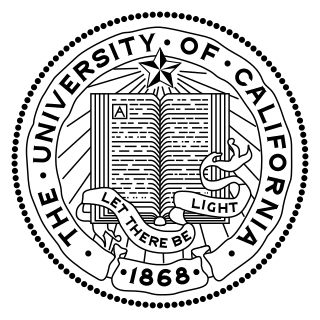Related Research Articles
Sharia,Sharī'ah, Shari'a, Shariah or Syariah is a body of religious law that forms a part of the Islamic tradition based on scriptures of Islam, particularly the Qur'an and hadith. In Islamic terminology sharīʿah refers to God's immutable, intangible divine law; contrary to fiqh, which refers to its interpretations by Islamic scholars -the practical application side of sharia in a sense-, elaborated and developed over the centuries by legal opinions issued by qualified jurists, always been used alongside customary law from the very beginning in Islamic history. Applied in courts by ruler-appointed judges, integrated with various economic, criminal and administrative laws issued by Muslim rulers.

The Thirteenth Amendment to the United States Constitution abolished slavery and involuntary servitude, except as punishment for a crime. The amendment was passed by the Senate on April 8, 1864, by the House of Representatives on January 31, 1865, and ratified by the required 27 of the then 36 states on December 6, 1865, and proclaimed on December 18. It was the first of the three Reconstruction Amendments adopted following the American Civil War.
De facto describes practices that exist in reality, regardless of whether they are officially recognized by laws or other formal norms. It is commonly used to refer to what happens in practice, in contrast with de jure.

A Juris Doctor, Doctor of Jurisprudence, or Doctor of Law (JD) is a graduate-entry professional degree that primarily prepares individuals to practice law. In the United States, it is the only qualifying law degree. Other jurisdictions, such as Australia, Canada, and Hong Kong, offer both the postgraduate JD degree as well as the undergraduate LL.B., BCL, or other qualifying law degree depending on the requirements of the jurisdiction where the person will practice law.

Harvard Law School (HLS) is the law school of Harvard University, a private research university in Cambridge, Massachusetts. Founded in 1817, Harvard Law School is the oldest law school in continuous operation in the United States.

Tulane University, officially the Tulane University of Louisiana, is a private research university in New Orleans, Louisiana. Founded as the Medical College of Louisiana in 1834 by a cohort of medical doctors, it became a comprehensive public university in the University of Louisiana in 1847. The institution became private under the endowments of Paul Tulane and Josephine Louise Newcomb in 1884 and 1887. The Tulane University Law School and Tulane University Medical School are, respectively, the 12th oldest law school and 15th oldest medical school in the United States.

Joan Ruth Bader Ginsburg was an American lawyer and jurist who served as an associate justice of the Supreme Court of the United States from 1993 until her death in 2020. She was nominated by President Bill Clinton to replace retiring justice Byron White, and at the time was viewed as a moderate consensus-builder. Ginsburg was the first Jewish woman and the second woman to serve on the Court, after Sandra Day O'Connor. During her tenure, Ginsburg authored the majority opinions in cases such as United States v. Virginia (1996), Olmstead v. L.C. (1999), Friends of the Earth, Inc. v. Laidlaw Environmental Services, Inc. (2000), and City of Sherrill v. Oneida Indian Nation of New York (2005). Later in her tenure, Ginsburg received attention for passionate dissents that reflected liberal views of the law. She was popularly dubbed "the Notorious R.B.G.", a moniker she later embraced.

The Hanafi school or Hanafism is one of the four major schools of Islamic jurisprudence within Sunni Islam. It was established by the 8th-century scholar, jurist, and theologian Abu Hanifa, a follower whose legal views were primarily preserved by his two disciples Abu Yusuf and Muhammad al-Shaybani. As the oldest and most-followed of the four major Sunni schools, it is also called the "school of the people of opinion". Many Hanafis also follow the Maturidi school of theology.

Columbia Law School (CLS) is the law school of Columbia University, a private Ivy League university in New York City.
A Bachelor of Laws is an undergraduate law degree offered in most common law countries as the primary law degree and serves as the first professional qualification for legal practitioners. This degree requires the study of core legal subjects and jurisprudence to provide a comprehensive understanding of the legal system and its function. The LLB curriculum is designed to impart a thorough knowledge of legal principles, legal research skills, and a sound understanding of the roles and responsibilities of lawyers within society. This degree is often a prerequisite for taking bar exams or qualifying as a practising lawyer, depending on the jurisdiction. Additionally, the LLB program also serves as a foundation for further legal education, such as a Master of Laws (LLM) or other postgraduate studies in law.

Stanford Law School (SLS) is the law school of Stanford University, a private research university near Palo Alto, California. Established in 1893, Stanford Law had an acceptance rate of 6.28% in 2021, the second-lowest of any law school in the country. George Triantis currently serves as Dean.

Yale Law School (YLS) is the law school of Yale University, a private research university in New Haven, Connecticut. It was established in 1824. The 2020–21 acceptance rate was 4%, the lowest of any law school in the United States. Its yield rate of 87% is also consistently the highest of any law school in the United States.

The American Bar Association (ABA) is a voluntary bar association of lawyers and law students; it is not specific to any jurisdiction in the United States. Founded in 1878, the ABA's stated activities are the setting of academic standards for law schools, and the formulation of model ethical codes related to the legal profession. As of fiscal year 2017, the ABA had 194,000 dues-paying members, constituting approximately 14.4% of American attorneys. In 1979, half of all lawyers in the U.S. were members of the ABA. The organization's national headquarters are in Chicago, Illinois, and it also maintains a significant branch office in Washington, D.C.
A Master of Laws is an advanced postgraduate academic degree, pursued by those either holding an undergraduate academic law degree, a professional law degree, or an undergraduate degree in a related subject. In most jurisdictions, the LL.M. is the advanced professional degree for those usually already admitted into legal practice.

The University of California College of the Law, San Francisco is a public law school in San Francisco, California, United States. It was previously known as the University of California, Hastings College of the Law from 1878 to 2023.

The Georgetown University Law Center is the law school of Georgetown University, a private research university in Washington, D.C., United States. It was established in 1870 and is the largest law school in the United States by enrollment, with over 2,000 students. It frequently receives the most full-time applications of any law school in the United States.

The New York University School of Law is the law school of New York University, a private research university in New York City.
Dean is a title employed in academic administrations such as colleges or universities for a person with significant authority over a specific academic unit, over a specific area of concern, or both. In the United States and Canada, deans are usually university professors who serve as the heads of a university's constituent colleges and schools. Deans are common in private preparatory schools, and occasionally found in middle schools and high schools as well.

A law school is an institution, professional school, or department of a college or university specializing in legal education, usually involved as part of a process for becoming a judge, lawyer, or other legal professional within a given jurisdiction. Depending on the country, legal system, or desired qualifications, the coursework is undertaken at undergraduate, graduate, or both levels.
The Jim Crow laws were state and local laws introduced in the Southern United States in the late 19th and early 20th centuries that enforced racial segregation, "Jim Crow" being a pejorative term for an African American. The last of the Jim Crow laws were overturned in 1965. Formal and informal racial segregation policies were present in other areas of the United States as well, even as several states outside the South had banned discrimination in public accommodations and voting. Southern laws were enacted by white-dominated state legislatures (Redeemers) to disenfranchise and remove political and economic gains made by African Americans during the Reconstruction era. Such continuing racial segregation was also supported by the successful Lily-white movement.
References
- ↑ Complete Guide to Law Schools, USNews.com, accessed April 16, 2006.